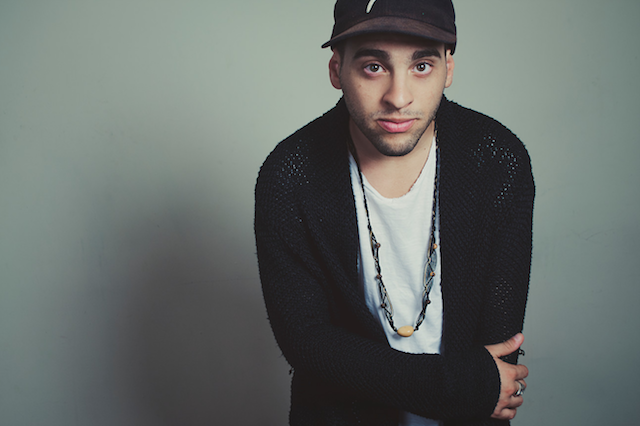Breaking returns with Samora Pinderhughes. The prodigal pianist and composer, who served as musical director for Blackout for Human Rights’ #MLKNow and #JUSTICEFORFLINT concerts, delivers a moving testament to resilience and resistance on “The Transformation Suite,” which is available for stream and purchase now.
Hometown: East Bay, California
Based in: New York City
Sound: Moving contemporary jazz with a sensitivity towards historical and contemporary racial justice issues.
Latest Release: “The Transformation Suite,” available now.
Why You Should Care: Just as John Coltrane captured the Civil Rights Movement’s urgency with “Alabama,” pianist and composer Samora Pinderhughes uses jazz music to invoke Black Lives Matter’s emotional underpinnings and necessity. His moving work brought him close to director and Blackout for Human Rights co-founder Ryan Coogler, who recognized Pinderhughes’ skill and made him musical director for the collective’s #MLKNow and #JUSTICEFORFLINT shows. On “The Transformation Suite,” a multi-movement work featured at #MLKNow and available for stream, Pinderhughes offers his version of a score for Black Lives Matter and honors the legacy of Black radical resilience and resistance.
“The Transformation Suite,” which you can listen to in full above, grew out of the 25-year-old musician’s undergraduate work at New York City’s famed Juilliard School. As he explained to us over the phone, he envisioned the six-track piece as a reflection on the past, present and future of Black diasporic experience in America. “With the ‘past,’ I chose to grab onto how the history of colonialism was reflected in the specific United States experience [of Black people],” he explained about the first section.
The “present-day” section addresses the trauma and violence in Black communities, including the mass incarceration. “When I started this project five years ago, [talking about mass incarceration] was an impossible conversation to have with so many people. [This section] involved trying to bring the humanity back to these situations where our young people are portrayed as evil when, in reality, they’re put in impossible, no-end situations,” he said.
The “future” section, said Pinderhughes, changed more than any other over the five years that he and his collaborators workshopped the piece. “At the beginning, it was this envisioning [of the future],” he said. “Now, with the Black Lives Matter movement, the Ferguson uprising, Dream Defenders, BYP—we don’t have to envision it, we’re in it.”
To further communicate these overarching themes, Pinderhughes partnered with Juilliard classmate and actor Jeremie Harris (“The Get Down”), who co-wrote and recited many of the composition’s spoken word components. “We built you Sam, in tears, sweat and blood/blisters and sores,” Harris emphatically recites on “History.” “Cycles,” the album’s third track, ups the ante with lyrics from trailblazing poet Saul Williams and even Tupac Shakur. Pinderhughes fills out the rest of the album with a cohort of other talented musicians including his sister Elena on flute and vocals.
While Pinderhughes thinks musical genres are BS" [and only] exist for the sellers,” he believes the lineage of jazz has tremendous relevance to contemporary racial justice movements. “Improvisation is freedom,” he said. “If we’re going to have a radical imagination about how to build our communities, we have to think about stuff that doesn’t exist before. We have to collaborate in ways that have never been thought of. That’s literally what jazz music is at its best—people literally making things up on the spot together.”
This vision of music and art as providing language and inspiration for social justice movements endeared him to the influential creators of color behind Blackout for Human Rights. Pinderhughes met Coogler, another Bay Area native, while working as a Sundance Fellow in film scoring two years ago. A week later, Coogler’s wife Zinzi Evans e-mailed him and asked if he’d like to be a part of the collective.
Pinderhughes most recently partnered with other social justice-minded artists for the Campaign for Black Male Achievement’s “Black Male Re-Imagined” concert earlier this month. There, he performed with Chance the Rapper and Lalah Hathaway, the second of whom performed Pinderhughes’ “For Those Lost,” a tribute to Sandra Bland. While “For Those Lost” does not appear on “The Transformation Suite,” it can be interpreted as an extension of its ethos and Pinderhughes’ aim to further social justice conversations through his music.
“My most important hope with [“The Transformation Suite”] is that organizers and people who are part of the movement feel that it is something living up to the movement’s ideals, and a helper instead of a hindrance to our collective path to justice,” he said.
With one listen to “The Transformation Suite,” you’ll feel just how deep it resonates with the movement’s greatest aspirations.
